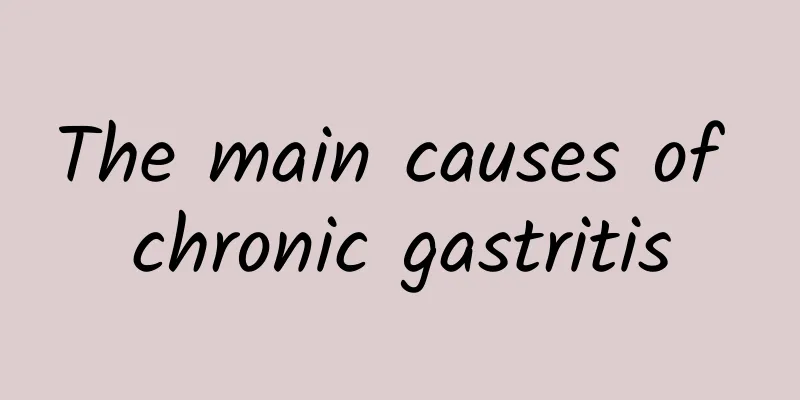The main causes of chronic gastritis

|
People's eating conditions are better now, but many people don't pay much attention to their eating habits, which can easily lead to various stomach problems. Chronic gastritis is a relatively common gastrointestinal disease. Once it occurs, it will have a great impact on our health. The key is to require long-term treatment. Therefore, it is important to understand the cause and take proactive measures to prevent it. So, what are the main causes of chronic gastritis? Stimulant foods and drugs Long-term use of foods and medicines that are highly irritating to the gastric mucosa. Such as strong tea, liquor, spicy or salicylate drugs, or insufficient chewing of food, repeated impact of rough food on the gastric mucosa, or excessive smoking, direct action of tobacco acid on the gastric mucosa. The sequelae of acute gastritis After acute gastritis, if the gastric mucosa does not heal for a long time or recurs repeatedly, chronic gastritis may develop. Immune factors Changes in immune function have been widely recognized in the pathogenesis of chronic gastritis. Parietal cell antibodies can be found in the blood, gastric juice or atrophic mucosa of patients with atrophic gastritis, especially gastric body gastritis; intrinsic factor antibodies have been found in the blood of patients with pernicious anemia of gastric atrophy, indicating that autoimmune reaction may be a related cause of some chronic gastritis. Reflux of duodenal fluid Studies have found that patients with chronic gastritis often suffer from sphincter dysfunction, which often causes bile reflux, and this may be an important pathogenic factor. The phospholipids in the pancreatic juice, together with the bile digestive enzymes, can dissolve mucus and destroy the gastric mucosal barrier, promoting the back diffusion of H+ and pepsin into the mucosa, which is more likely to cause damage. The chronic gastritis caused by this mainly occurs in the gastric antrum. Infectious factors Studies have found that patients with chronic gastritis have a large number of Helicobacter pylori (HP) in the gastric antral mucus layer close to the surface of epithelial cells, with a positive rate as high as 50%~80%. This bacterium is not found in normal gastric mucosa. Wherever the bacteria settle, there is infiltration of inflammatory cells in the gastric mucosa, and the degree of inflammation is related to the number of bacteria. |
<<: How to detox quickly after taking drugs
>>: Chronic gastritis black stool
Recommend
Collection of Anti-tumor Chinese Medicine
There has always been a misunderstanding about Ch...
Are viral colds contagious?
Viral colds are a common respiratory infectious d...
Spinal vascular malformations
We may not have heard much about spinal vascular ...
What should people with kidney deficiency do?
From the perspective of Western medicine, the kid...
How to decoct Chinese herbal medicine ginseng
I believe everyone has heard of the traditional C...
How effective is traditional Chinese medicine in treating mycoplasma infection?
Mycoplasma infection is quite troublesome because...
How to treat facial eczema
Eczema is actually a skin problem. In addition to...
How much do you know about the effects and functions of Salvia miltiorrhiza powder?
The main material for making Danshen powder is th...
The second time I had the face-lift injection, I didn't feel any soreness.
Face-slimming injections are a beauty product that...
What is the reason for the numbness in the back of the right foot?
Numbness in the right instep is a common problem ...
Traditional Chinese Medicine is Really “Quick, Sharp and Accurate” in Treating Myocardial Infarction
The symptoms of acute myocardial infarction are s...
Human internal organs
The human body is made up of various internal org...
How to relieve gas when a child has a bloated stomach?
As the baby grows, parents need to take good care...
How can people with cold body be treated effectively?
Cold body is exclusive to female friends, especia...
Is surgery necessary for vocal cord polyps?
Because of incorrect pronunciation habits and imp...









